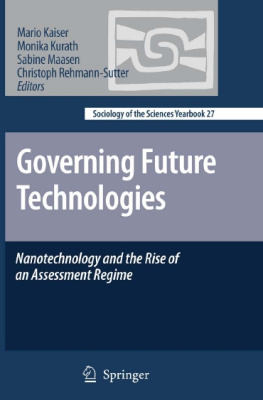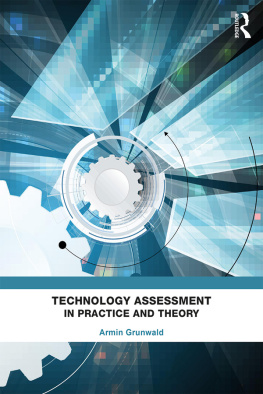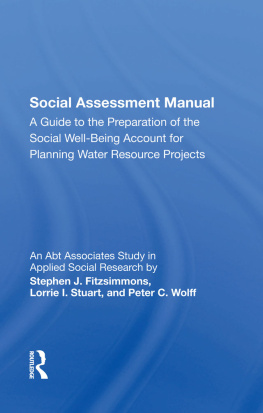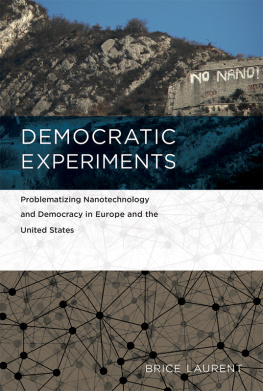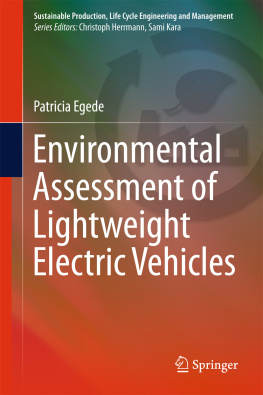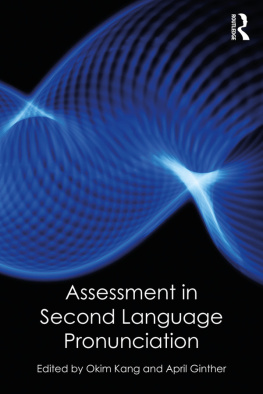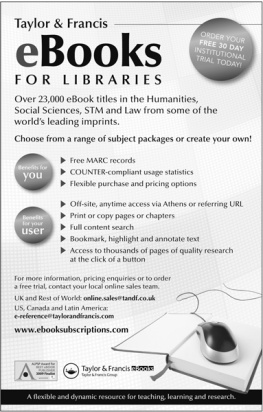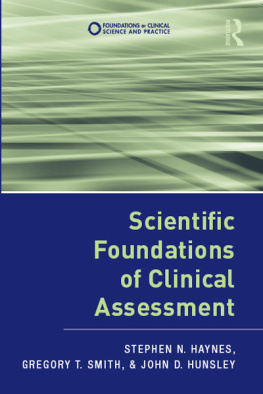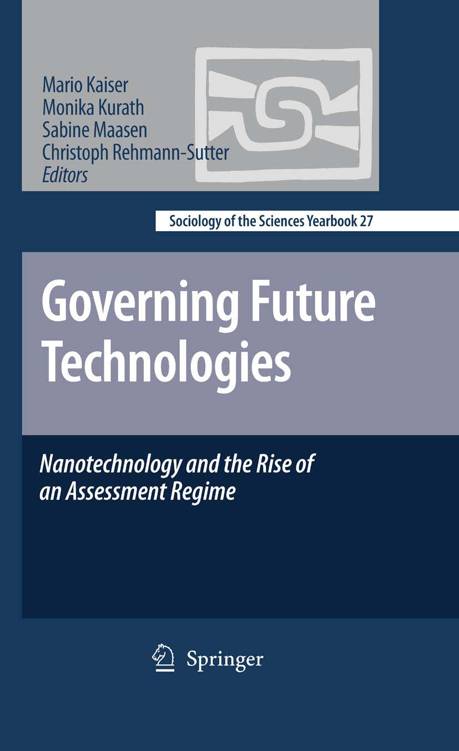Martina Merz (auth.) - Governing Future Technologies: Nanotechnology and the Rise of an Assessment Regime
Here you can read online Martina Merz (auth.) - Governing Future Technologies: Nanotechnology and the Rise of an Assessment Regime full text of the book (entire story) in english for free. Download pdf and epub, get meaning, cover and reviews about this ebook. year: 2010, publisher: Springer Netherlands, genre: Politics. Description of the work, (preface) as well as reviews are available. Best literature library LitArk.com created for fans of good reading and offers a wide selection of genres:
Romance novel
Science fiction
Adventure
Detective
Science
History
Home and family
Prose
Art
Politics
Computer
Non-fiction
Religion
Business
Children
Humor
Choose a favorite category and find really read worthwhile books. Enjoy immersion in the world of imagination, feel the emotions of the characters or learn something new for yourself, make an fascinating discovery.
- Book:Governing Future Technologies: Nanotechnology and the Rise of an Assessment Regime
- Author:
- Publisher:Springer Netherlands
- Genre:
- Year:2010
- Rating:3 / 5
- Favourites:Add to favourites
- Your mark:
Governing Future Technologies: Nanotechnology and the Rise of an Assessment Regime: summary, description and annotation
We offer to read an annotation, description, summary or preface (depends on what the author of the book "Governing Future Technologies: Nanotechnology and the Rise of an Assessment Regime" wrote himself). If you haven't found the necessary information about the book — write in the comments, we will try to find it.
Nanotechnology has been the subject of extensive assessment hype, unlike any previous field of research and development. A multiplicity of stakeholders have started to analyze the implications of nanotechnology: Technology assessment institutions around the world, non-governmental organizations, think tanks, re-insurance companies, and academics from science and technology studies and applied ethics have turned their attention to this growing fields implications. In the course of these assessment efforts, a social phenomenon has emerged a phenomenon the editors define as assessment regime.
Despite the variety of organizations, methods, and actors involved in the evaluation and regulation of emerging nanotechnologies, the assessment activities comply with an overarching scientific and political imperative: Innovations are only welcome if they are assessed against the criteria of safety, sustainability, desirability, and acceptability. So far, such deliberations and reflections have played only a subordinate role. This book argues that with the rise of the nanotechnology assessment regime, however, things have changed dramatically: Situated at the crossroads of democratizing science and technology, good governance, and the quest for sustainable innovations, the assessment regime has become constitutive for technological development.
The contributions in this book explore and critically analyse nanotechnologys assessment regime: To what extent is it constitutive for technology in general, for nanotechnology in particular? What social conditions render the regime a phenomenon sui generis? And what are its implications for science and society?
Martina Merz (auth.): author's other books
Who wrote Governing Future Technologies: Nanotechnology and the Rise of an Assessment Regime? Find out the surname, the name of the author of the book and a list of all author's works by series.

